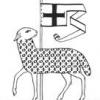Secondly, use modf, as I mentioned above. Makes it pretty trivial:
#include <iostream>
#include <string>
int main() {
float decimal_pounds;
std::cout << "Enter decimal pounds: ";
std::cin >> decimal_pounds;
float pounds, shillings, pennies;
float remainder;
remainder = modf(decimal_pounds, £s);
remainder *= 20.0; //convert to shillings
remainder = modf(remainder, &shillings);
remainder *= 12.0; //convert to pennies
remainder = modf(remainder, &pennies);
std::cout<<pounds<<" - "<<shillings<<" - "<<pennies<<" - "<<remainder<<std::endl;
return 0;
}As an additional note, if you accumulate those lost decimal points into an account... you end up having to burn down your place of work and take up construction.




